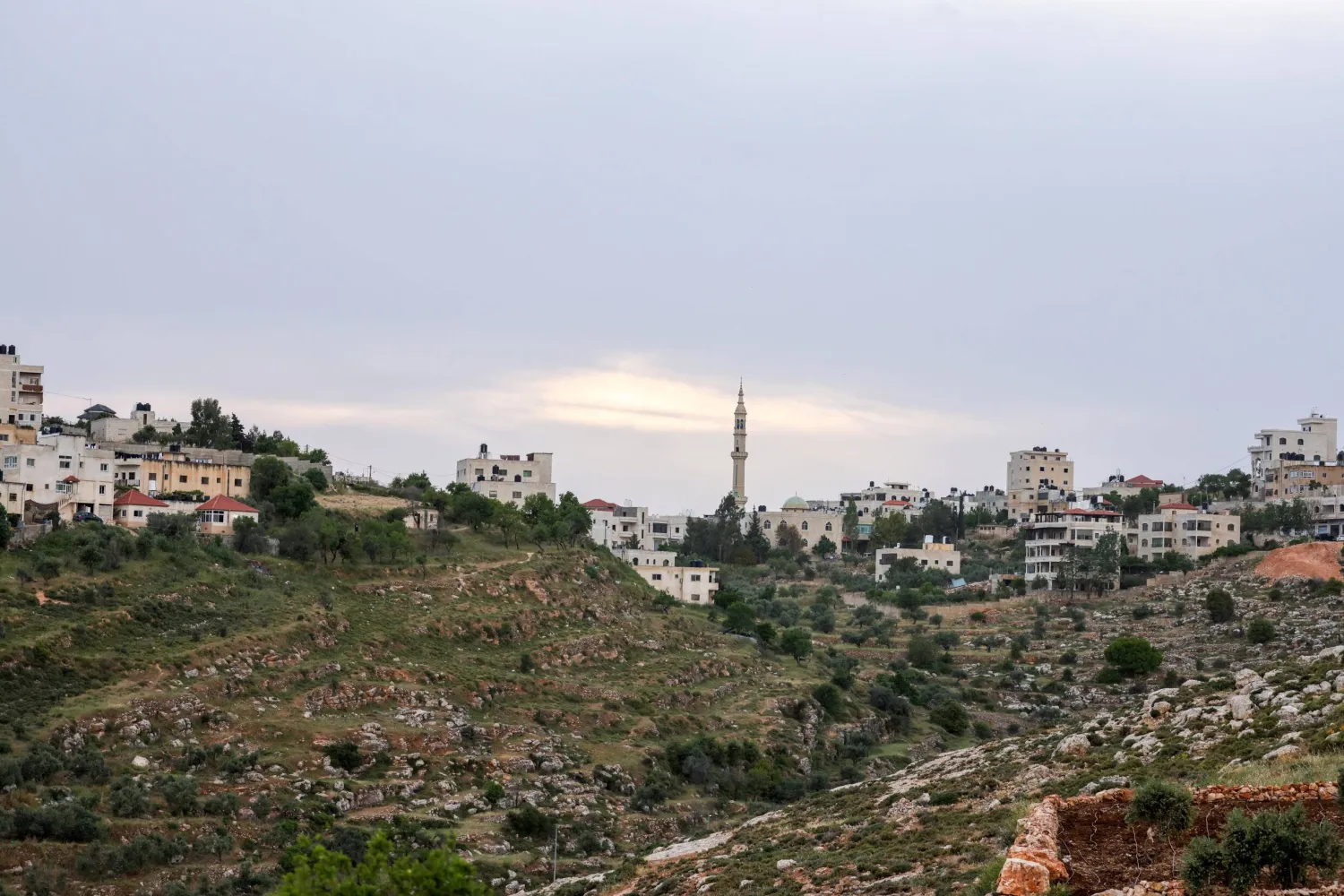Palestinians in the Israeli-occupied West Bank say armed Jewish settlers are increasingly seizing their lands by bringing livestock to so-called shepherding outposts and refusing to leave.
One settler arrived recently near sunset on a hilltop near the village of Deir Jarir, wearing a black shirt and a green headscarf, like many Palestinian farmers, they said.
"The settlers imitate us in every way," said Abdullah Abu Rahme, a member of a Palestinian anti-settler group, who said the hardliners also employ violence and "throw stones at us and block roads".
One local man, Haidar Abu Makho, 50, looked sadly across to a hill where settlers' sheep were now grazing, in the rural area near Ramallah.
The land, where settlers' bungalows and cars could be seen ringed by a wire fence, he said, "rightfully belongs to my grandfather and father and is meant to be passed down through the generations".
But now, he said, "this shepherd, who is a settler... has obstructed my access to my land".
Israel has occupied the West Bank, home to three million Palestinians, since 1967. Around 490,000 Israeli settlers live there in communities considered illegal under international law.
Violence has often flared, but the bloodshed has intensified since the October 7 attack by Gaza's rulers Hamas sparked the devastating war in the Palestinian coastal territory.
- 'Aggressive' confiscations -
Human rights groups have blamed the hardline religious-nationalist settler movement for an upsurge in attacks and land grabs since the start of the Gaza war.
Among the most radical are the so-called "hilltop youth", often teenage school dropouts who dream of settling all of the biblical land of Israel, and who sometimes also clash with Israeli security forces.
Israeli analyst Elhanan Miller said the hilltop shepherds are "far-right extremists who settle Palestinian land illegally", mostly in the southern West Bank and Jordan Valley.
Miller told AFP that many of them are "marginalized" youths who left school early and use shepherding of sheep and goats as a cover to seize land and natural resources.
Rights groups say settlers in shepherding outposts carry guns and have used attack dogs to threaten and attack Palestinians, sometimes killing their livestock and destroying their property.
The groups have been especially active around Deir Jarir, a village of about 5,000 people, said the local man, Abu Makho.
"The settlers have effectively blocked access to vast stretches of land around Deir Jarir, preventing both agricultural use and grazing for the people across tens of kilometers," he said.
"By situating a shepherd with a flock of sheep atop a hill, a substantial portion of land is seized... denying Palestinians access to it."
He said settlers had "aggressively confiscated" local houses and tractors as well as horses and donkeys, all "symbols of the Palestinian traditional farming life".
- 'Defenceless' -
Israeli rights group B'Tselem said in a report in March that attacks had surged, including incidents where settlers in vehicles were "speeding erratically directly into Palestinian flocks and herds".
B'Tselem also charged that settler groups have enjoyed backing by Israeli security forces.
"Through cooperation and collaboration among the military, police, settlers... Israel has reduced grazing areas available to Palestinians, blocked regular water supply and took measures to isolate the Jordan Valley from the rest of the West Bank," it said.
The Israeli army did not respond to an AFP request for comment on the Deir Jarir case.
Israeli settlement watchdog group Peace Now said that so far this year, as world attention has focussed on Gaza, Israel has seized more than 1,000 hectares of West Bank land.
In March, Israeli authorities declared as state land 800 hectares next to a farmer's home near the Jordan Valley village of Jiftlik, a move that often leads to restrictions on Palestinians' access.
In areas near Deir Jarir, other residents also said they had been impacted, at great cost to their livelihoods.
Suleiman Khouriyeh, the mayor of the nearby village of Taybeh, population 1,800, said the "entire eastern region has been encroached upon by numerous hilltop shepherds".
"We are unable to access the olive groves that we rightfully own" during harvest season, he said, adding that the community's losses amounted to thousands of dollars.
Khouriyeh said that locals don't have "the power or strength to confront the heavily armed" settlers.
"We are defenseless against them and their weapons."
Guns and Sheep: Settlers Use Shepherding Outposts to Seize West Bank Land

Israeli settlers 'have effectively blocked access to vast stretches of land around Deir Jarir', says Palestinian resident. (AFP)

Guns and Sheep: Settlers Use Shepherding Outposts to Seize West Bank Land

Israeli settlers 'have effectively blocked access to vast stretches of land around Deir Jarir', says Palestinian resident. (AFP)
لم تشترك بعد
انشئ حساباً خاصاً بك لتحصل على أخبار مخصصة لك ولتتمتع بخاصية حفظ المقالات وتتلقى نشراتنا البريدية المتنوعة












